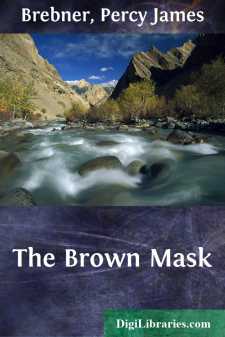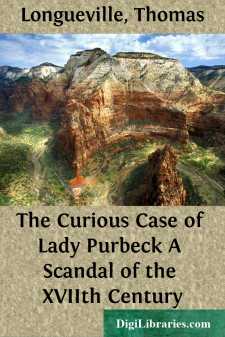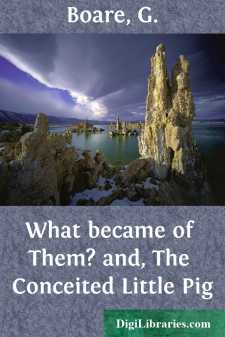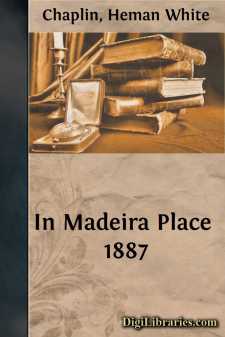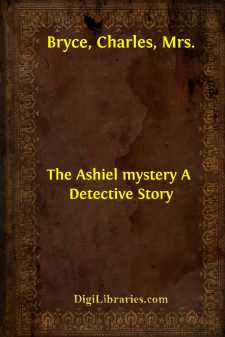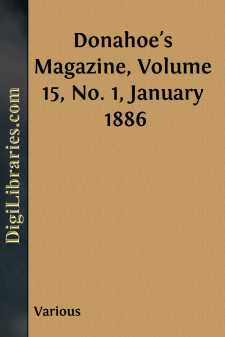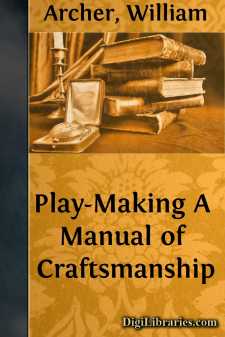Categories
- Antiques & Collectibles 13
- Architecture 36
- Art 48
- Bibles 22
- Biography & Autobiography 813
- Body, Mind & Spirit 142
- Business & Economics 28
- Children's Books 17
- Children's Fiction 14
- Computers 4
- Cooking 94
- Crafts & Hobbies 4
- Drama 346
- Education 46
- Family & Relationships 57
- Fiction 11829
- Games 19
- Gardening 17
- Health & Fitness 34
- History 1377
- House & Home 1
- Humor 147
- Juvenile Fiction 1873
- Juvenile Nonfiction 202
- Language Arts & Disciplines 88
- Law 16
- Literary Collections 686
- Literary Criticism 179
- Mathematics 13
- Medical 41
- Music 40
- Nature 179
- Non-Classifiable 1768
- Performing Arts 7
- Periodicals 1453
- Philosophy 64
- Photography 2
- Poetry 896
- Political Science 203
- Psychology 42
- Reference 154
- Religion 513
- Science 126
- Self-Help 84
- Social Science 81
- Sports & Recreation 34
- Study Aids 3
- Technology & Engineering 59
- Transportation 23
- Travel 463
- True Crime 29
Sort by:
by:
Georgie Sheldon
CHAPTER I. A NEW DISCOVERY DEEPENS A MYSTERY. When Mrs. Montague entered her room, an hour after Mona went up stairs, there was a deep frown upon her brow. She found Mona arrayed in a pretty white wrapper, and sitting before the glowing grate reading a new book, while she waited for her. "What are you sitting up for, and arrayed in that style?" she ungraciously demanded. "I thought you...
more...
CHAPTER I BRETHREN OF THE ROAD Dismal in appearance, the painted sign over the mean doorway almost obliterated by time and weather, there was nothing attractive about the "Punch-Bowl" tavern in Clerkenwell. It was hidden away at the end of a narrow alley, making no effort to vaunt its existence to the world at large, and to many persons, even in the near neighbourhood, it was entirely unknown....
more...
CHAPTER I. "After this alliance,Let tigers match with hinds, and wolves with sheep,And every creature couple with its foe."Dryden. The political air of England was highly charged with electricity. Queen Elizabeth, after quarrelling with her lover, the Earl of Essex, had boxed his ears severely and told him to "go to the devil;" whereupon he had left the room in a rage, loudly...
more...
CHAPTER I THE HUT ON THE CLIFF No well informed resident of Millsburgh, when referring to the principal industry of his little manufacturing city, ever says "the mills"—it is always "the Mill." The reason for this common habit of mind is that one mill so overshadows all others, and so dominates the industrial and civic life of this community, that in the people's thought it...
more...
by:
Alexander Irvine
CHAPTER I LOVE IS ENOUGH nna's purty, an' she's good as well as purty, but th' beauty an' goodness that's hers is short lived, I'm thinkin'," said old Bridget McGrady to her neighbor Mrs. Tierney, as Mrs. Gilmore passed the door, leading her five-year-old girl, Anna, by the hand. The old women were sitting on the doorstep as the worshipers came down the lane...
more...
by:
G. Boare
e was a rat, and she was a rat,And down in one hole they did dwell,And both were as black as a witch’s cat,And they loved one another well.He had a tail, and she had a tail,Both long and curling and fine,And each said “Yours is the finest tailIn the world,—excepting mine!” e smelt the cheese, and she smelt the cheese,And they both pronounced it good,And both remarked it would greatly addTo the...
more...
Turning from the street which follows the line of the wharves, into Madeira Place, you leave at once an open region of docks and spars for comparative retirement. Wagons seldom enter Madeira Place: it is too hard to turn them in it; and then the inhabitants, for the most part, have a convenient way of buying their coal by the basket. How much trouble it would save, if we would all buy our coal by the...
more...
by:
Charles Bryce
CHAPTER I When Sir Arthur Byrne fell ill, after three summers at his post in the little consulate that overlooked the lonely waters of the Black Sea, he applied for sick leave. Having obtained it, he hurried home to scatter guineas in Harley Street; for he felt all the uneasy doubts as to his future which a strong man who has never in his life known what it is to have a headache is apt to experience at...
more...
by:
Various
LEO PP XIII. Venerable Brethren, Health and Apostolic Benediction. The work of a merciful God, the Church looks essentially, and from the very nature of her being, to the salvation of souls and the winning for them of happiness in heaven, nevertheless, she also secures even in this world, advantages so many and so great that she could not do more, even if she had been founded primarily and specially to...
more...
by:
William Archer
CHAPTER I INTRODUCTORY There are no rules for writing a play. It is easy, indeed, to lay down negative recommendations--to instruct the beginner how not to do it. But most of these "don'ts" are rather obvious; and those which are not obvious are apt to be questionable. It is certain, for instance, that if you want your play to be acted, anywhere else than in China, you must not plan it in...
more...



